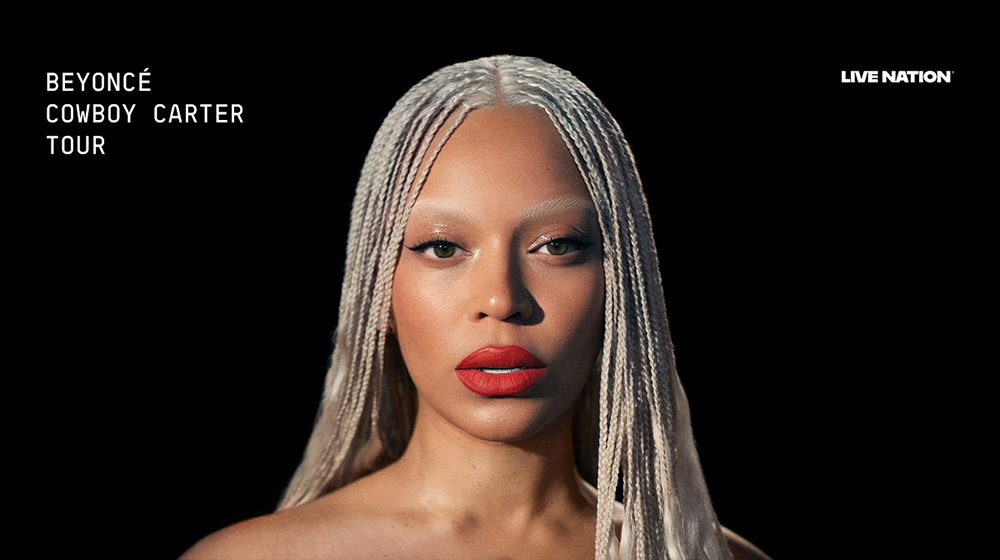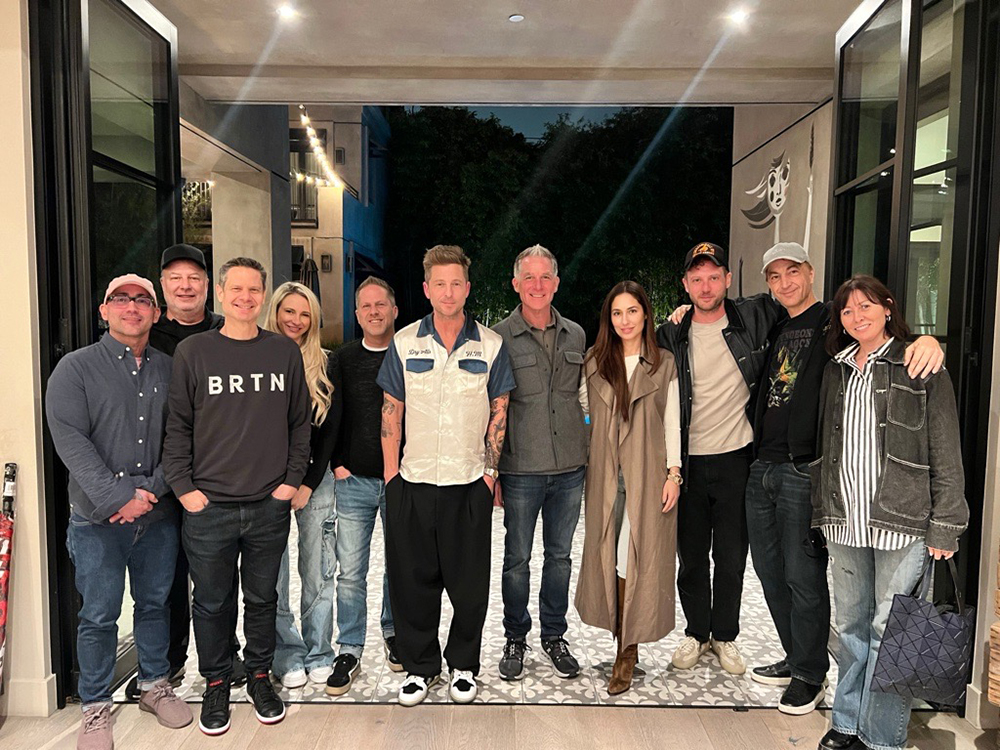(Hypebot) — Stuck in a creative rut? With this guide to getting feedback on your music, learn how to grow by using constructive feedback from the people who matter most.
via Bandzoogle
When tunnel vision prevents you from seeing (or hearing) objectively, getting a second opinion on your music can be a saving grace. It’s easy to get stuck in one mode of thought, which can be very frustrating when all you want to do is move forward. Whether you’re second-guessing a lyric, artistic direction, or album track list, gathering feedback from others can provide the clarity you need to shift your perspective and keep things fresh.
Both your fans and industry professionals can offer you honest feedback, and sometimes even provide opportunities for your music. Asking for feedback not only helps you improve but also invites new people into your artistic journey, showing them that you’re open to growth. Being open to input can deepen your connection with listeners and industry allies alike, keeping your creative path dynamic and collaborative.
Get feedback from the music industry
As a musician, you know that the music industry is vast. It consists of endless moving parts that all work together to make up today’s music business; whether it’s the writers behind a music blog or the venue bookers for live shows, everyone plays a role in the success of today’s artists.
Here are a couple of ways to get feedback on your music from those who make the industry what it is:
Reach out to independent playlisters
When someone’s job is to curate music for others, they’re constantly searching for new talent. User-generated playlists are becoming more and more popular on streaming services, notably Spotify, and can be the reason an emerging artist starts getting traction. The creators behind these playlists are often fervent music fans who love to discover new sounds and artists, and do it because it is fulfilling, not because they have to. This makes playlist curators excellent points of contact for independent artists looking to expand their reach and get an opinion on their music.
Given the nature of their work, you can trust that playlist curators will be honest in their response; if you make good music, it’s a win-win for both parties, so they want you to succeed. Find a couple playlists on Spotify that you feel your music would fit into, and look for the curator’s contact information. They will often put their email or social media tag in their bio, so you can either reach out by email or through DMs.
In your message, briefly explain who you are and what kind of music you make. Make sure you know what the crux of your message is; do you want feedback on an upcoming release, or would you like their opinion on something you put out already? Be clear with what you’re asking for so they know how best to respond. If all goes well, you will get a second opinion on your work, and may even get a playlist placement out of it!
Use music submission platforms
Playlisters aren’t the only ones who want you to succeed — there are a number of music submissions platforms that encourage artists to send in their tracks. Many music blogs have submission pages where you can send your music and a pitch about yourself for them to consider. Other sites that specialize in concert reviews and interviews also accept submissions and direct messages through their ‘Contact’ pages. If you do a little digging, you’ll find that many music platforms and websites want you to get in touch. Pro tip: search for them by genre; if they specialize in the music you make, you’ll be even more likely to get a positive response.
One risk of being an independent artist without many connections is that you might not get any responses. That’s where certain online platforms come in, with tools that help musicians reach curators and industry professionals — and we highly recommend Groover, one of the most reputable services in its field. Groover can connect independent musicians with over 3,000 industry partners, spanning from influencers, radio stations, and playlisters to labels, managers, and magazines. Going through a reputable platform with such connections guarantees a response, so it’s worth the $2 to send a pitch. With Groover, if you don’t get a response in 7 days of submitting your pitch, you get your credits back to send a message to someone else.
Music industry professionals are on the platform to support emerging artists, but also in hopes of discovering high-potential artists before anyone else. By sending them your track through the platform, you’re not only guaranteed to get feedback but there’s also a good chance it could lead to an exciting opportunity for your music.

Attend camps and music residencies
What better than to get feedback in real time, as you’re creating your music? Joining a songwriting camp is one of the best ways to meet other people in the industry and work with people that have real expertise. Music residencies are similar — you’ll get to live and collaborate with other artists and producers with the sole purpose of learning and exchanging ideas.
Camps and music residencies are hosted year-round by organizations and labels alike. They bring together writers, singers, producers, and engineers to create music for the entire duration of the program, often hosting a showcase at the end of the term. When you apply, they will require that you provide a sample of your work, so make sure to have something on hand that represents you well. Show them that you are enthusiastic about working with others to develop your artistry. You’ll leave with connections, confidence, and new music to put out.
Get feedback from fans
Having direct contact with your listeners is much easier now that so much happens on social media. Though you must not take every single comment to heart, there is value in keeping tabs on what your fans are thinking and feeling when it comes to your music.
Here are some ways to get genuine feedback from your supporters:
Play live shows and host live streams
Face-to-face interaction is invaluable — being able to read the energy of the room is incredibly informative if you’re evaluating how people respond to your songs. Make an effort to play live shows as much as you can. If you are not yet comfortable with frequent performance, try playing a show prior to a new release or immediately after. If you’re about to drop something new, playing live will give you the chance to read the crowd’s energy during their first listen, and if you’ve just released something, it’ll be a great chance to assess whether people have taken a liking to it so far.
Take advantage of Instagram and TikTok live streams as well. Fans love real time interaction, and you can have a genuine conversation with your viewers about what you’re working on. Everyone loves giving their opinion, so ask them questions about what they’d like to see more or less of. Keep in mind that Instagram and TikTok’s viewers differ, in that TikTok makes your ‘live’ available to anyone — not just your followers. With an Instagram live broadcast, your viewers will be people who already follow you, so the comments are more likely to be constructive and supportive.
Share your music on community platforms
There are a number of ways to ask for honest feedback online, as long as you’re using the right platform. For example, the comments options on SoundCloud allow listeners to leave feedback at a marked point in the song. If you are hesitant about a certain lyric, verse, or production choice, this might be a really useful feature, allowing you to dial into a specific timestamp on the track to get specific feedback. SoundCloud is a great place to share music before officially posting it on bigger streaming services, so don’t be afraid to share different versions of your song and ask your following or friends to give them a listen and share their thoughts.
The more human and interactive the platform, the better. One of the best places to engage with a community in such a way is on Reddit. Music-sharing subreddits are numerous, and their followers are there because they love music discovery and discussion. You can ask for the most general feedback to the most specific request, and you are bound to get some answers. Remember to follow the community guidelines and respond to those who commented — it’s a perfect space for conversation.
Final tips
- Though feedback can do wonders for your creativity, remember to stick to your guns. No one knows the reasoning behind your creative choices like you do, so follow your intuition above all else.
- Getting a label executive’s thoughts on your music may sound like a dream, but if you want a genuine opinion that will help you grow, start smaller. You want to speak to an individual whose opinion is based on their pure love for music, not on business.
- When using social networks, do not take every comment to heart. Practice filtering through feedback that is actually valuable to you and hits on what you were curious about. A rock music fan will not like an electro-pop song — recognize when a comment comes from a true listener over an opinionated internet user.
——————————————
Groover helps artists get their music heard. Through an innovative web platform, Groover supports artists who want to promote their music, connecting them with the best curators, radio, and labels seeking emerging talent. On www.groover.co, artists can send their music directly to a selection of blogs, radios, playlist curators, record labels and pros of their choice, get feedback and coverage in exchange!
More than 2 million pieces of feedback have been given by more than 2,000 active music curators and pros, 500k+ shares (reviews, playlist additions etc.) and 1,000+ signatures to record labels happened thanks to Groover.
Save 15% on your first Groover campaign with the code GROOVERBANDZOOGLE [more info on how to apply the special discount here]




























































